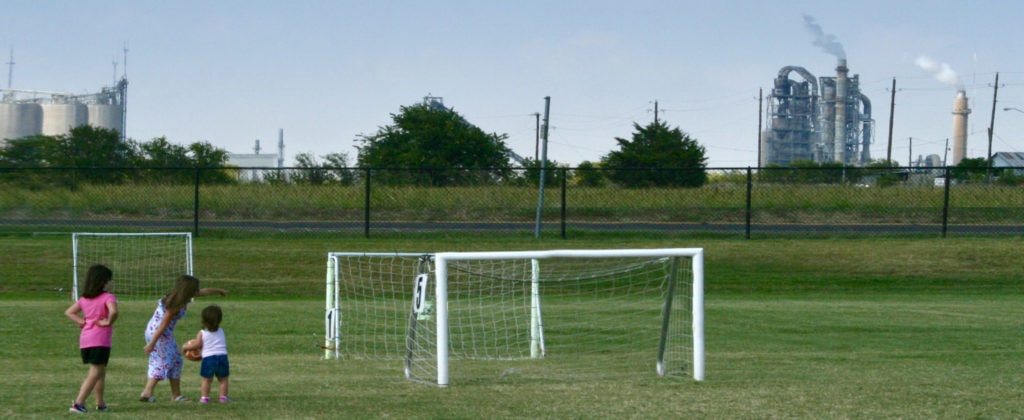Deficiencies Found In Holcim Permit Request
Midlothian- Midlothian Breathe representatives Laura Hunt, Abigail Slye, Tonja Millet and Patricia Brown recently appeared at the Midlothian City Council meeting to discuss their concerns about the Holcim Permit. The permit asks to increase carbon monoxide emissions and burn more petroleum coke at the Midlothian plant. Midlothian Breathe is a nonprofit organization formed by concerned members of the community. They hired Dr. Ron Sahu to review the Holcim permit request, and reported his findings to the city council.
Dr. Sahu found five major deficiencies in the Holcim permit request. They range from a failure to cut CO emissions by half to problems caused by burning more petroleum coke. Other concerns were avoiding oversight, gambling with community safety, and using inappropriate data to justify their permit.
Laura Hunt from Midlothian Breathe
Hunt said, “In spite of Midlothian City Council’s refusal to provide financial support for Dr. Sahu to review the Holcim permit or perform their own independent review, Midlothian Breathe was able to raise enough money through support from local citizens and a small grant to fund the review themselves. Dr. Sahu has given us a written summary and talked with us extensively by phone to make sure we have a full understanding of the major deficiencies he identified in the permit. These deficiencies include Holcim’s explicit choice to ask for permission to increase emissions rather than fix faulty equipment, lack of supporting evidence for claims that SOx, NOx and PM emissions will be adequately contained, utilizing a loophole to avoid a PSD review for several high-risk pollutants, and inappropriate choices of locations for their meteorological data for modeling.”

“Even with all of this shaky backing and apparent manipulation to minimize their emissions increases, Holcim’s own modeling summary still predicts that they will take PM 2.5 emissions to within one point of the federally allowed limit. PM 2.5 is one of the most toxic substances that Holcim currently emits with new medical studies coming out almost every day showing that there is no truly safe level of exposure. Any amount of PM 2.5 exposure (even well below current federal limits) has been tied to a wide-range of adverse health effects including everything from dementia, diabetes, heart attacks, cancer, and respiratory problems to mental health problems, including suicide,” Hunt said.
To learn more about the study visit midlothianbreathe.org for more information.














